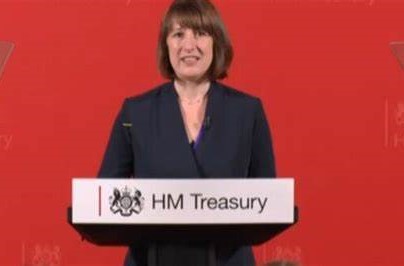Skynesher | E+ | Getty Images
New technologies have given people access to more information and new tools to manage their money.
Robo-advisors can build and rebalance portfolios based on customer preferences. However, automation doesn’t factor in people’s emotional needs.
Experts say adding behavioral science to investing knowledge can help financial advisors get better results for their clients.
Understanding behavioral science
Advisors are increasing their use of artificial intelligence tools for more rote tasks, such as research, scheduling and even stock picking.
That change is one of the drivers that has more investment advisors focused on behavioral science to understand how and why people make the financial decisions they do. Behavioral economics combines the study of economics and the study of psychology to understand how people make financial decisions.
“For too long as a profession, we have been taught that we should be ignoring emotions,” said certified financial planner Tim Mauer, chief advisory officer at SignatureFD, which has offices in Atlanta and Charlotte, North Carolina. “We better be more astute students of our clients’ behavior and emotion so we can better understand how to point that emotion in the right direction.”
Instead of a quantitative approach to managing a mix of stocks, bonds and other assets, Mauer suggests a qualitative approach that uncovers the person’s purpose behind the portfolio.
“We’re focusing our planning on the actual human felt needs that our clients have, rather than the tools and techniques that we might utilize in order to help them achieve their goals,” Maurer said Wednesday during a session at CNBC’s FA Summit.
“The best investment is not necessarily the one that shows the highest long-term rate of return, it’s the investment that our clients can stick with,” said Maurer, who is also a member of the CNBC Financial Advisor Council.
Connecting to the human
Keeping emotions in check can help guide people through rocky financial markets and help them, as famed investor Warren Buffett once notably said, “Be fearful when others are greedy and to be greedy only when others are fearful.”
While AI can help with finding different ways of explaining financial strategies, it can’t connect with people.
“You can give great advice and people won’t take it. So the creative problem-solving comes in being vulnerable and being able to communicate that in a way that’s going to speak to them,” said Sam G. Huszczo, a CFP and founder of SGH Wealth Management near Detroit. “There’s no AI that’s doing that for you.”
Don’t confuse behavioral science with financial therapy
Financial advisors can use behavioral science to understand people’s emotions and help guide them to make better decisions, but it’s not therapy.
“Financial therapy is looking at a situation that is intractable, where somebody cannot get past a particular financial behavior,” Maurer said. “And then they’re working with a therapist that has a specifically financial bent, to go back in time and determine what was it in my past that may have generated this particular behavior.”
Financial therapy digs deeper into issues that may be keeping people from reaching their financial goals.
“The financial therapist can peel back the layers so that folks can be more comfortable with their relationship with money and better understand why they’re making the decisions with money that they are and work towards their goals that way,” said Ashley Agnew, president of the Financial Therapy Association.
For example, Agnew says she worked with a client who had in his financial plan to sell his family business to fund his retirement, but he kept derailing deals to make the sale. To understand why, in therapy sessions they dug deep into his feelings about the sale. He revealed that the business was the only thing his father had praised and they unpacked his feelings from there to help him move forward.
“It makes a little bit more sense once you get to that,” said Agnew, who is also a director at Centerpoint Advisors in Needham, Massachusetts.
Financial therapists will often refer clients to licensed mental health counselors if the issues, such as abuse, get too far beyond the finances.








